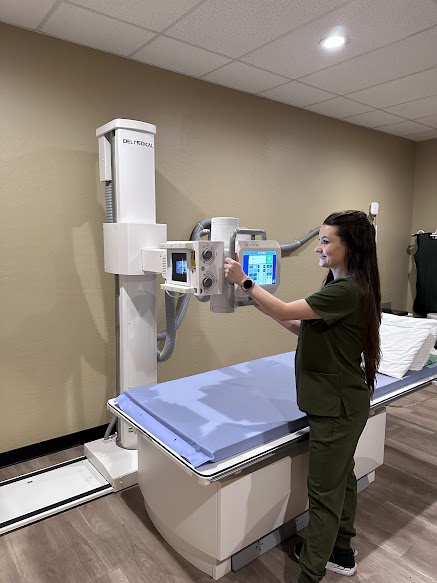What is Interventional Radiology?
Interventional radiology (commonly called IR) harnesses the power of advanced imaging techniques, such as X-rays, MRI (magnetic resonance imaging), fluoroscopy (an X-ray procedure that makes it possible to see internal organs in motion), CT (computed tomography), and ultrasound to treat complex conditions – even cardiovascular disease and cancer – less invasively and with unprecedented precision.
Interventional radiologists perform a broad range of procedures such as treating tumors, organ biopsies, or stent-placement, by inserting tiny instruments and thin plastic tubes (catheters) into the body via an artery or vein.
The radiologic images are used to guide the catheters and instruments to the exact area where the procedure or treatment is to be performed. This makes it possible to diagnose and treat a variety of conditions almost anywhere in the body through a puncture as small as a pinhole, where previously, full open surgery and lengthy hospital stays were required.
Common Interventional Radiology Procedures in Phoenix
With this technology, our fellowship trained IR specialists can provide a range of procedures, including:
- Liver, kidney, and lung cancer treatment and management.
- Image-guided biopsies for diagnosis and molecular profiling.
- Venous access – port placement, dialysis catheters, dialysis graft and fistula management.
- Uterine Artery Embolization for Uterine Fibroids.
- BPH (enlarged prostate) treatment.
- Peripheral arterial disease treatment.
- DVT and PE treatments.
- Portal hypertension treatments like TIPS and BRTO.
- IVC filter placements and complex removals.
Treatments
These procedures involve treatments such as:
- Destroy malignant tumors with extreme heat or cold, without harming healthy tissue.
- Block the blood supply to harmful growths such as uterine fibroids, eliminating the need for hysterectomies in many women.
- Shrink an enlarged prostate (BPH) so men can avoid urologic surgery.
- Open blocked blood vessels in peripheral vascular disease.
- Biopsy tissue in areas that once required exploratory surgery.
- Drain blockages in the liver, gallbladder, kidney and other organs.
Continuing advances in technology mean the range of conditions that can be treated by interventional radiology is continuing to expand.








